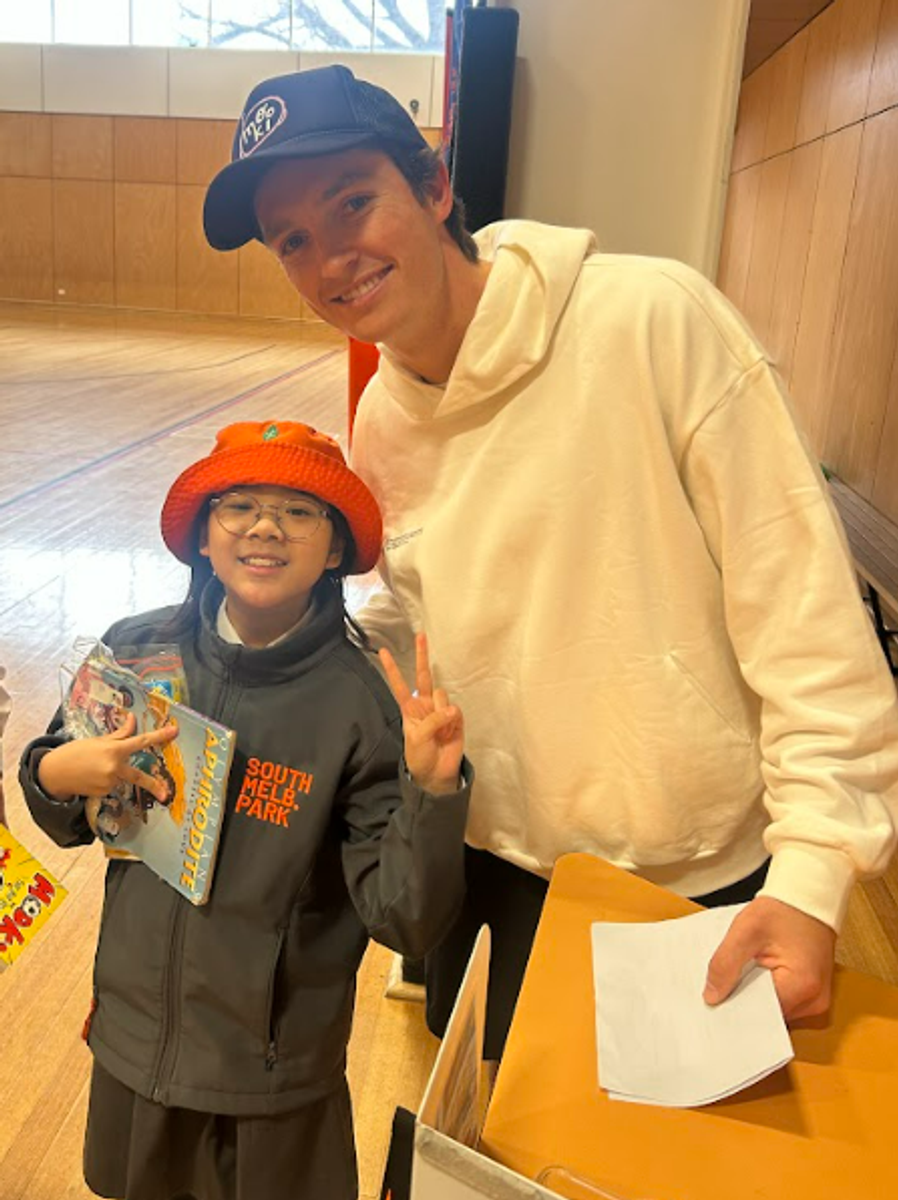Learning Specialist News
BE INVOLVED, BE CONNECTED

Learning Specialist News
BE INVOLVED, BE CONNECTED
Scotty James’s visit was more than just an event—it was a moment of inspiration. Through his story, his character MOOKi, and his Olympic journey, he helped our students understand that persistence, creativity, and courage can help us overcome anything. Here’s to all our students stepping into their own MOOKi adventures—big or small.






We’re thrilled to host Katrina Nannestad on Thursday, 28 August, with events for Year 2 at 1:20 PM and Years 4 & 6 at 2:40 PM.


Katrina’s storytelling is celebrated for weaving history, mystery, adventure, and humour into heartwarming tales that emphasise family, friendship, belonging, hope, and resilience. Her works range from joyful chapter books to powerful historical fiction, resonating with readers of all ages.
With our younger readers she will be sharing her series like The Travelling Bookshop, Olive of Groves, Lottie Perkins, Red Dirt Diaries, and The Girl, the Dog and the Writer.
With our older readers she will be sharing her range from joyful chapter books to powerful historical fiction, including We Are Wolves, and Waiting for the Storks.
Her visit promises to be a delightful blend of storytelling, learning, and inspiration that will stay with us long after the final word is spoken. It will be a memorable day of creativity, laughter—and unforgettable stories!
We wish to extend our sincere gratitude to the Pandolfini family for financially supporting, this wonderful event.
We’re excited for the upcoming Book Week Book Swap on Thursday 21st August, held to raise funds for Story Dogs.
To make the event a success, we’re still in need of gently used books in excellent condition. Donations can be placed in the tubs at the front office or front gate, or handed directly to your child’s teacher.
On the day of the swap, students are invited to bring a gold coin donation to choose a “new” book from the stall.
Thank you for supporting a great cause and helping us foster a love of reading!
Reading isn't just a school task—it’s a journey of imagination, confidence, and lifelong learning. Here are some simple, effective ways you can support your child in loving reading:
Children mirror the habits they observe. If they see you reading regularly—whether it's books, articles, or recipes—they’ll be more inspired to pick up a book themselves. Exposing them to various types of reading materials boosts both literacy and curiosity.
Set aside just 10 minutes each day for shared reading. Whether it’s bedtime stories or a cozy after-school read, this small, consistent rhythm significantly boosts literacy and shows children that reading is valued.
Kids are far more excited about reading when they pick the material themselves. Whether it’s picture books, comics, non-fiction, or magazines, offering choice reinforces that reading can be fun and tailored to their interests.
Don’t just read—talk about the story! Ask questions like:
These conversations encourage critical thinking and comprehension, helping children to make connections and understand deeper meanings.
When encountering new or interesting words, discuss what they mean and how they’re used in the story. This active engagement helps children internalise and remember vocabulary—strengthening both comprehension and expression.
Reading isn’t confined to books alone! Involve your child in everyday literacy—reading recipes during cooking, clues for a treasure hunt, or recipes for fun activities like baking. These routine moments help them connect with reading in a meaningful way.
By weaving reading into everyday life—through shared experiences, cozy spaces, and choice—you’re not just supporting your child’s literacy—you’re helping them fall in love with stories.